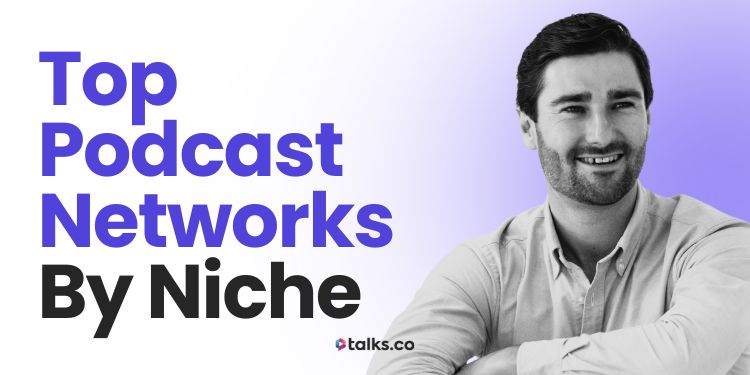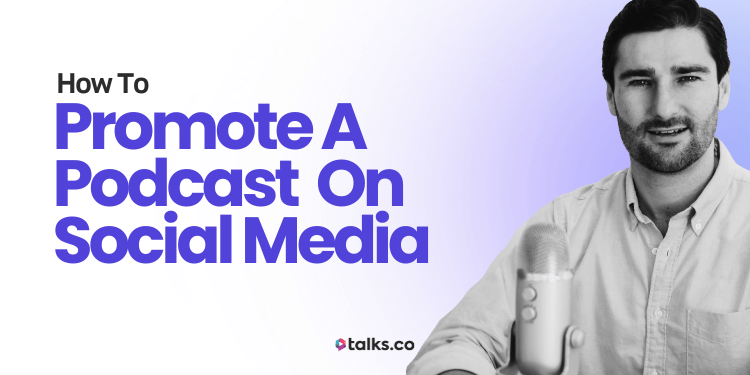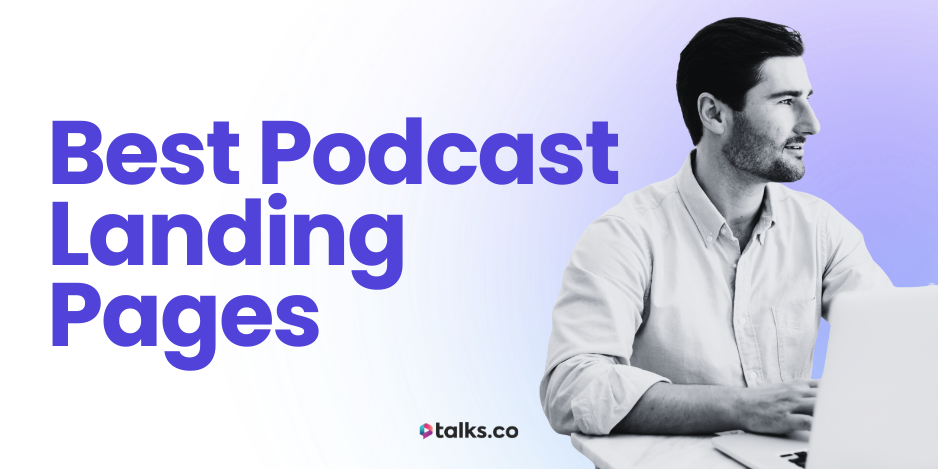Ever wondered why some podcasts seem to explode overnight while others barely get a listen?
If you’re a coach, consultant, author, or entrepreneur trying to grow your reach, you’ve probably asked: how do I actually get heard?
That’s where podcast networks come in.
I’ve spent years learning the ins and outs of podcast advertising and marketing, and I know what works when it comes to a new podcast getting noticed without losing your authenticity.
In this article, you’ll find everything you need to know about the top podcast networks, how to join one that fits your niche, and the real benefits that come with it.
Think of it as your game plan to grow your audience, build authority, and get in front of the right listeners.
Ready to join the podcast network that’ll actually get your voice out there?
Top Podcast Networks to Join in 2026
Not sure where to start?
Here’s a quick snapshot of the top podcast networks in 2026, including what each media company does best, so you can learn how to join and find the right fit fast to grow your podcast.
- Best for business coaches and entrepreneurs: HubSpot Podcast Network
- Best for faith-focused podcasts: Calvary Global Network
- Best for independent creators who want freedom: Independent Podcast Network
- Best for true crime fans: Exactly Right Media
- Best for comedy lovers: Earwolf
- Best for sports talk and analysis: The Ringer
- Best for black creators and culture: The Black Effect
- Best for storytellers who love deep narratives: Radiotopia
- Best for educators and knowledge sharers: Education Podcast Network
- Best for shows that don’t fit one box: Acast
- Best for women, LGBTQ+, and creators of color: Atabey & Co.
- Best for small podcasts with fresh ideas: That’s Not Canon
- Best for celebrity-backed comedy podcasts: Big Money Players (Will Ferrell’s network)
- Best for high-quality true crime and stories: Wondery
What Is a Podcast Network?
A podcast network is a group of shows supported by the same team or company. They help with things like getting more listeners, landing sponsors, and handling the backend so you’re not doing it all yourself.
Think of it like joining a team where everyone benefits from shared resources (e.g., marketing, production, ad deals) and you still get to run your own show.
Here’s what a podcast network usually offers:
- Promotion and marketing: Your show might get featured in email blasts, cross-promoted on other podcasts, or pushed out to new listeners.
- Ad sales and sponsorships: Access to sponsors you likely wouldn’t get on your own, like a wellness brand sponsoring your health coaching podcast.
- Production support: Help with editing, artwork, or tech, so you’re not stuck fixing audio late at night.
- Community and collaboration: Network with other podcasters, swap guest spots, or co-host bonus episodes.
- Podcast monetization opportunities: Think beyond ads. Some networks offer subscriptions, event deals, or merchandise options.
It’s more reach, more support, and less doing-everything-yourself.
Best Podcast Networks by Podcast Niche
The best podcast network for your show isn’t always the biggest. It’s the one that fits your content and audience.
Here’s a quick list of networks that back specific niches and actually help creators grow, monetize, and stay true to their voice.
1. Podcast business network
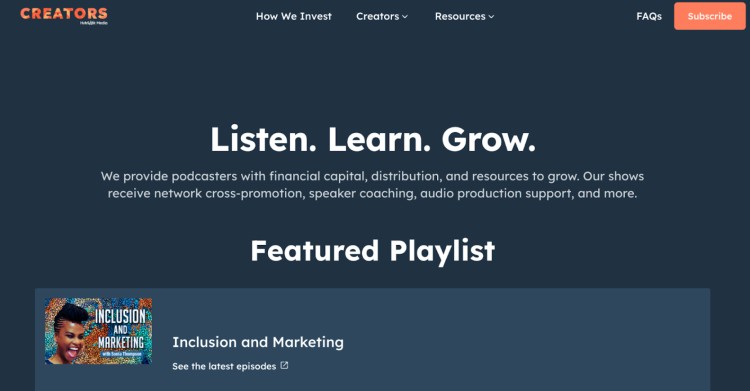
Best for: Coaches, consultants, and entrepreneurs who want serious reach and solid monetization
HubSpot Podcast Network is a top player in business podcasting, backed by the team behind HubSpot CRM. Their lineup includes leaders across sales, marketing, and growth.
Noteworthy shows:
- My First Million
- Marketing Against the Grain
- The Goal Digger Podcast
Pros:
- Huge built-in audience.
- Great fit for business or marketing podcasts.
Cons:
- Tough to get in.
- Requires consistent, high-quality episodes.
2. Christian podcast networks
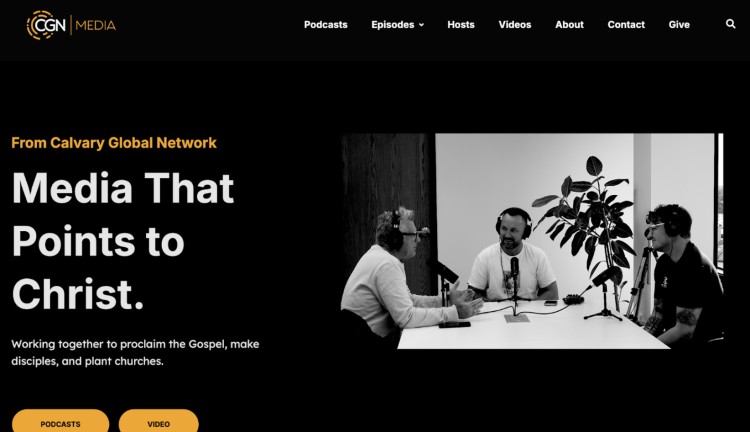
Best for: Pastors, ministry leaders, and faith-focused creators connecting with Christian listeners
Calvary Global Network (CGN) supports gospel-centered podcasts that help churches and leaders grow. Their shows mix solid teaching with real ministry stories.
Noteworthy shows:
- When She Leads
- Women Worth Knowing
- The CGN Podcast
Pros:
- Strong faith-based community and resources.
- Support for ministry growth and coaching.
Cons:
- Very niche and theology-focused.
3. Independent podcast networks
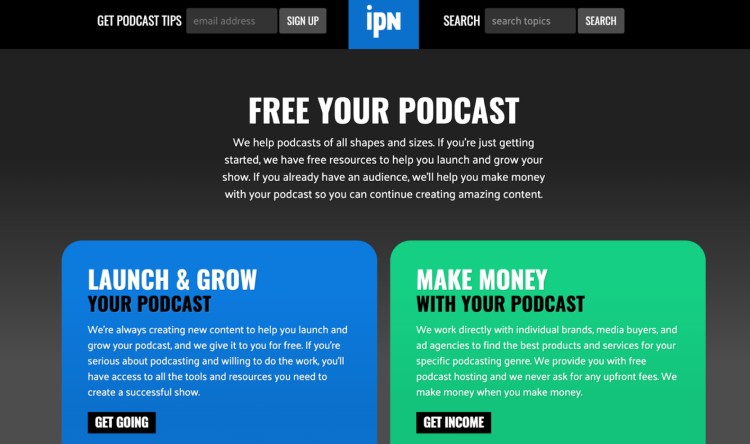
Best for: Creators wanting freedom and community without corporate rules
Independent Podcast Network (IPN) backs shows that keep their authentic voice. They offer marketing, sponsorships, and collaboration, minus the big company limits.
Noteworthy shows:
- Mama Genius Hub Podcast
- The Audacious Living Podcast
- Living the Dream with Curveball
Pros:
- Creative freedom with solid network perks.
- Close-knit community.
Cons:
- Smaller reach, fewer formal resources.
4. True crime podcast networks
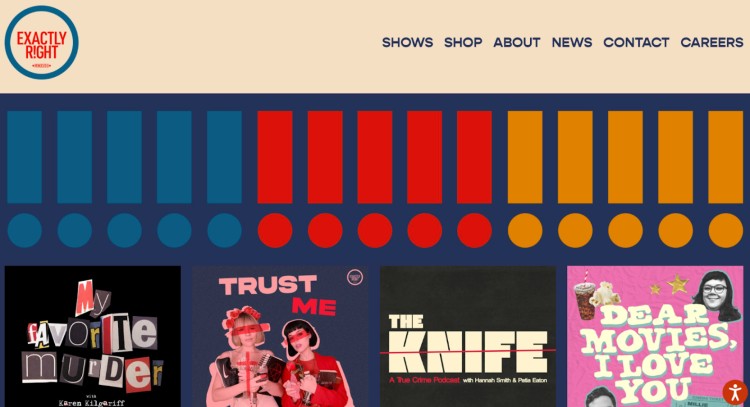
Best for: True crime storytellers and fans craving engaged, loyal audiences
Exactly Right Media is a powerhouse in true crime, known for gripping storytelling and high production quality. They back top shows that keep listeners hooked episode after episode.
Noteworthy shows:
- My Favorite Murder
- The Knife
- Dear Movies, I Love You
Pros:
- Huge, loyal true crime fanbase.
- Strong support with marketing and sponsorship deals.
Cons:
- Very competitive to join.
- High bar for storytelling and production quality.
5. Comedy podcast networks
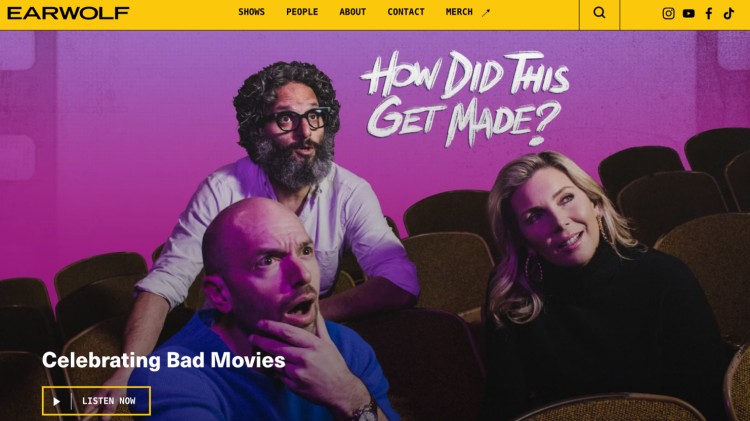
Best for: Comedians and funny folks wanting to reach fans who crave laughs
Earwolf started by comedians, for comedians. It’s the place where funny podcasts get help growing their audience and landing sponsors without losing their unique voice.
Noteworthy shows:
- Comedy Bang! Bang!
- Office Ladies
- How Did This Get Made?
Pros:
- Supportive comedian community.
- Great for building fans and industry ties.
Cons:
- Mostly comedy-focused.
- Can feel crowded with big names.
6. Sports podcast networks
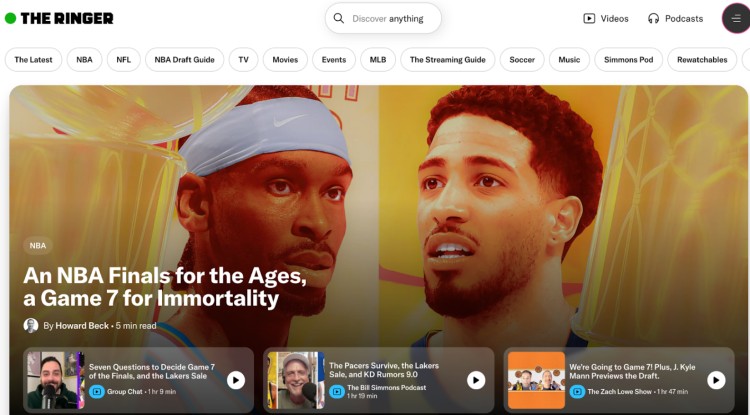
Best for: Podcasters covering sports news, analysis, and fan culture who want passionate listeners
The Ringer is a big name in sports and pop culture. They back sharp shows with big hosts and a growing audience hungry for hot takes.
Noteworthy shows:
- The Bill Simmons Podcast
- Ringer NFL Show
- The Watch
Pros:
- Large, sports-focused audience.
- Strong production and marketing.
Cons:
- Hard to stand out with big names.
- High content and consistency standards.
7. Black podcast networks
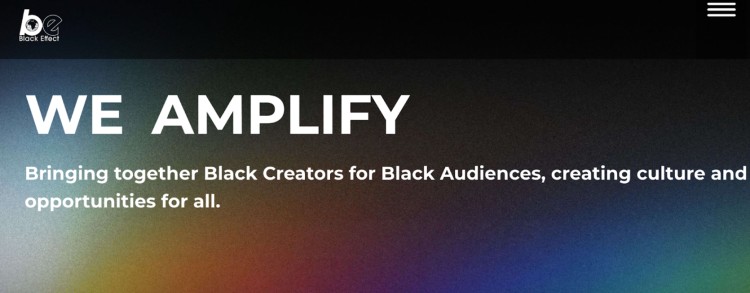
Best for: Black creators focused on culture, stories, and community
The Black Effect supports Black voices across culture, business, and lifestyle. They help creators grow their podcast audience while staying authentic and impactful.
Noteworthy shows:
- The 85 South Show
- Reasonably Shady
- Black Tech, Green Money
Pros:
- Strong focus on Black culture and empowerment.
- Community-driven with solid growth support.
Cons:
- Competitive to join.
8. Narrative podcast network
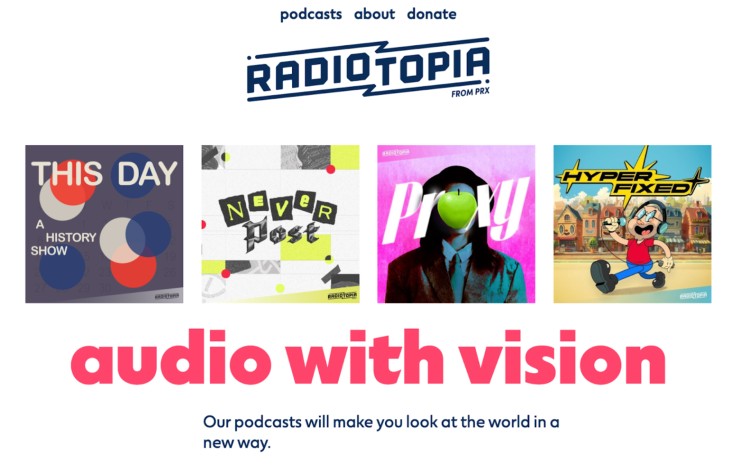
Best for: Story-driven creators building immersive, cinematic audio
Radiotopia backs narrative-heavy shows with great sound, emotion, and originality. If you’re all about storytelling craft, this is your crew.
Noteworthy shows:
- 99% Invisible
- Ear Hustle
- The Memory Palace
Pros:
- High production standards.
- Tight peer network.
Cons:
- Selective on types of podcasts.
9. Education podcast network
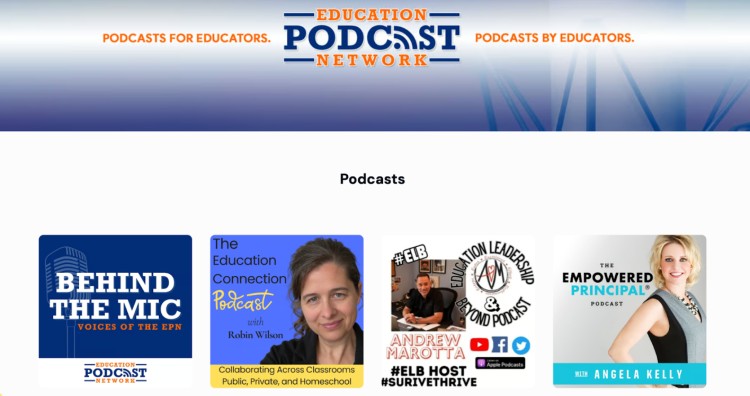
Best for: Coaches, teachers, and subject-matter experts who love to teach
The Education Podcast Network (EPN) is built by and for educators sharing real, practical content. Great for growing authority in learning-focused spaces.
Noteworthy shows:
- House of #EdTech
- The Google Teacher Podcast
- EduDuctTape Podcast
Pros:
- Strong niche audience of educators.
- Supports thought leadership.
Cons:
- Limited exposure outside of education.
10. General/multi-genre podcast network
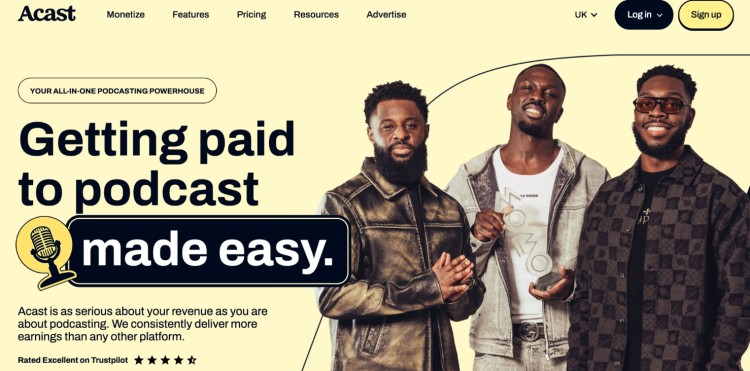
Best for: Creators with unique concepts that don’t fit neatly into one niche
Acast offers support for a wide range of shows, from storytelling and interviews to culture and commentary. It’s built for podcasters who want reach, monetization, and full creative control.
Noteworthy shows:
- Sh**ged Married Annoyed
- The Guilty Feminist
- Football Ramble
Pros:
- Format flexibility.
- Global reach and built-in monetization
Cons:
- Not as niche-focused as some creators may prefer.
11. Women’s podcast network
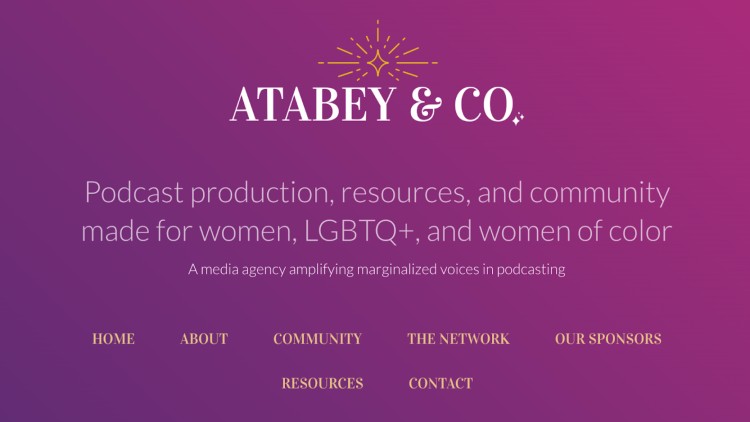
Best for: Women and LGBTQ+ creators building authentic, community-driven shows
Atabey & Co. is a platform built to amplify indie voices often overlooked. They help creators grow without needing huge download numbers.
Noteworthy shows in the network include:
- Grad School Femtoring
- Writing Black Joy
- Are You Free for Coffee?
Pros:
- Supportive space for women’s voices and stories.
- Creative freedom with pro-level production.
Cons:
- Smaller reach than major networks.
12. Podcast network for small podcasts
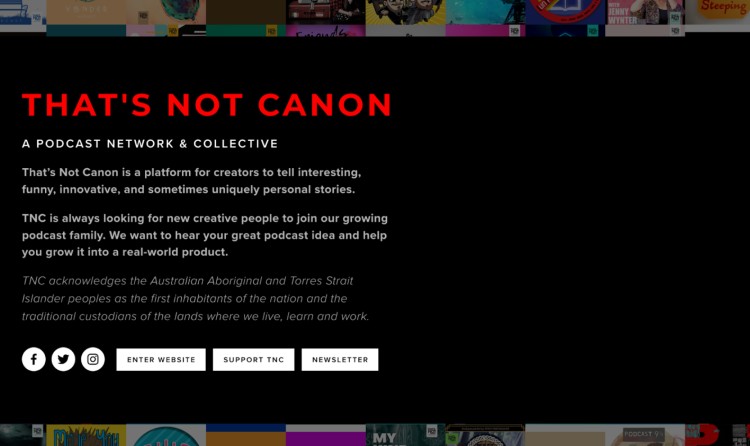
Best for: Indie creators with fresh ideas and small-but-mighty shows
That’s Not Canon gives newer podcasters tools, feedback, and exposure without the pressure of needing massive numbers.
Noteworthy shows in the network include:
- Nerds Amalgamated
- Law & Disorder
- Nine and Three-Quarters
Pros:
- Beginner-friendly.
- Strong support for growing unique voices.
Cons:
- Limited ad revenue opportunities until your show grows.
13. Will Ferrell podcast network
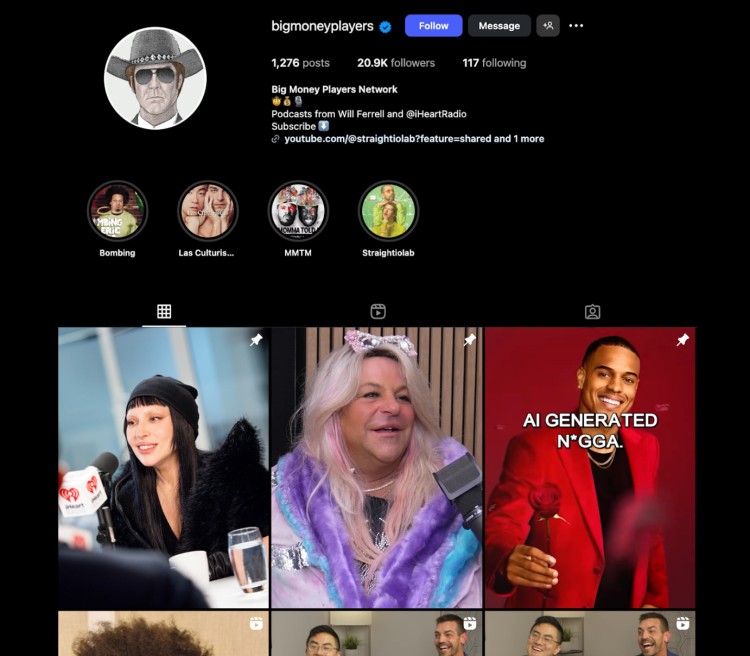
Best for: Comedy creators who want backing from big names and big budgets
Big Money Players is powered by Ferrell and iHeartMedia, helping top comedy shows stand out with serious production value.
Noteworthy shows:
- Las Culturistas
- Films To Be Buried With
- Poog
Pros:
- Star power and solid resources.
Cons:
- Leans toward celebrity-led shows.
14. Wondery podcast network
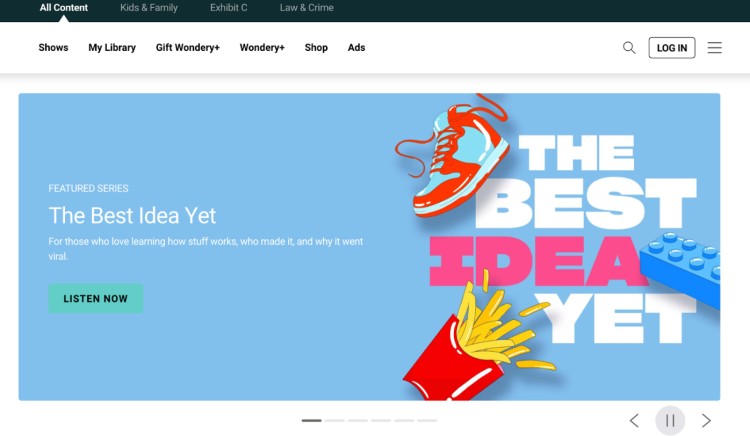
Best for: True crime and narrative podcasters ready for prime-time storytelling
Wondery is an American podcast network known for binge-worthy hits and immersive sound. They bring strong marketing and premium sponsor access, but competition’s tough.
Noteworthy shows:
- Dirty John
- Dr. Death
- The Shrink Next Door
Pros:
- Top-tier production quality.
- Great monetization paths.
Cons:
- May require exclusivity.
- Entry is competitive.
7 Major Podcast Networks You Should Know
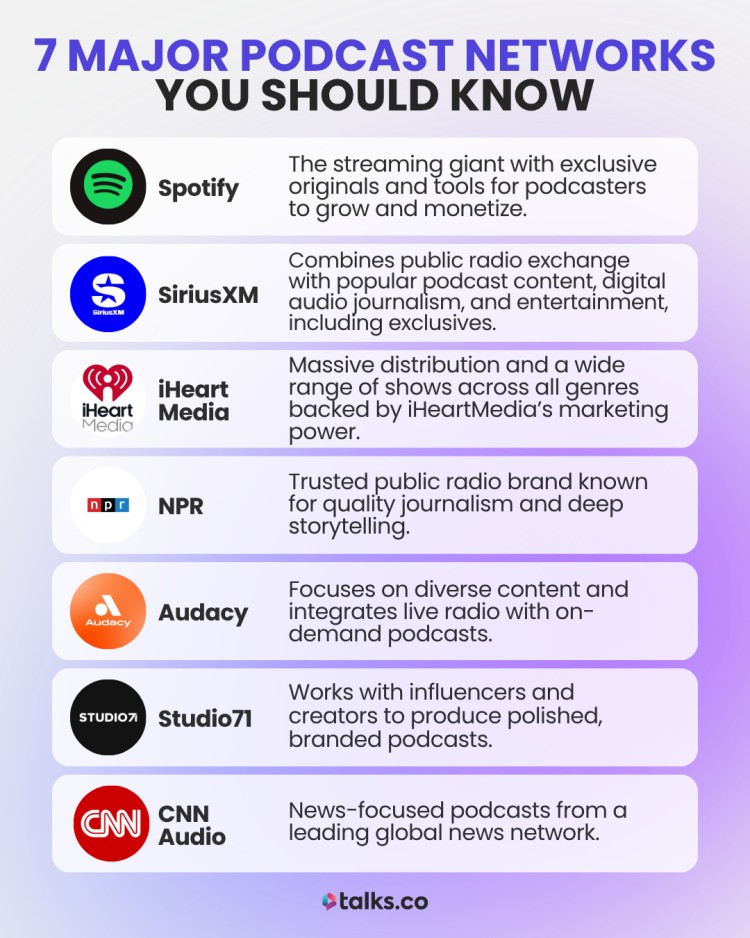
These are the heavy hitters in podcasting. They offer wide reach, strong production value, and often a roster of hit shows that dominate charts.
- Spotify: The streaming giant with exclusive originals and tools for podcasters to grow and monetize.
- SiriusXM: The SiriusXM podcast network combines public radio exchange with popular podcast content, digital audio journalism, and entertainment, including exclusives.
- iHeartMedia: Massive distribution and a wide range of shows across all genres backed by iHeartMedia’s marketing power.
- NPR: Trusted public radio brand known for quality journalism and deep storytelling.
- Audacy: Focuses on diverse content and integrates live radio with on-demand podcasts.
- Studio71: Works with influencers and creators to produce polished, branded podcasts.
- CNN Audio: News-focused podcasts from a leading global news network.
Podcast Networks List (4 Hidden Gems)
If you want to go beyond the big names, check out these networks that focus on specific styles and audiences:
- Tinkercast: Family-friendly shows that make learning fun for kids and parents alike.
- Crooked Media: Focuses on politics, culture, and current events, known for its engaging hosts and loyal audience.
- HeadGum: A comedy-first network supporting up-and-coming creators with a relaxed, creative vibe.
- Pushkin Industries: Co-founded by Malcolm Gladwell, known for narrative-driven podcasts that blend storytelling with deep research.
These networks make it easier to find your tribe and get your show in front of the right listeners.
How Does a Podcast Network Work?
Let’s say you host a mindfulness podcast for entrepreneurs. You’re handling everything yourself (editing, promoting your podcast on social media, trying to land sponsors) but growth’s stalled.
Now picture this instead:
- You join a niche network. Your new episode gets promoted across three other shows in the group. Downloads per month spike. New listeners start booking discovery calls.
- A network rep emails you. A wellness brand wants to sponsor your next four episodes. You record the ad, get paid. No pitching required.
- You get feedback from the team. They spot a drop-off at minute eight. Turns out your intro’s too long. You tweak it, and listener retention improves.
- A fellow podcaster invites you on. You co-host an episode on burnout. You both pick up new followers. Your email list grows.
- You join a private Slack. People swap tools, trends, and promo tips. You post your latest episode, others reshare it that day.
How a good podcast network works is it plugs you into support, reach, and revenue without you losing creative control.
How do podcast networks make money?
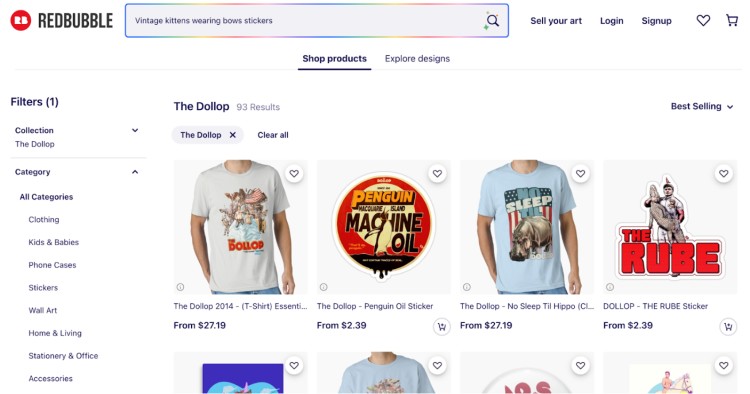
Podcast networks often don’t rely on one single income stream. Networks typically combine creative monetization methods to keep the lights on and their podcasters within the network paid.
Here are ten distinct ways a network may do it:
- Programmatic ads. Automated ads inserted across many shows. Wondery and iHeartPodcasts use this to fill lots of episodes quickly.
- Direct sponsorships. Networks secure brand deals for groups of popular shows. Beehiiv offers tools to help podcasters connect directly with sponsors and advertisers.
- Subscriptions. Listeners pay for ad-free or bonus content. QCODE and Pushkin Industries offer paid memberships.
- Branded podcasts. Networks create shows for companies like Dell or Slack. Pacific Content specializes in this.
- Content licensing. Popular podcasts on podcast directories like Apple Podcasts for Creators and Spotify for Creators can get licensed for TV or books.
- Live events. Podcasts like The Dollop make money through tours and live shows.
- Courses and tools. Networks sell training and resources, like Podcasters’ Paradise.
- Merchandise. Maximum Fun runs merchandise stores tied to their shows, boosting listener support.
- Affiliate marketing. Shows like Smart Passive Income earn via affiliate links for tools they recommend.
- Crowdfunding and listener donations. Like the Education podcast network, they make it simple for fans to chip in with donations right on their site.
How to Join a Podcast Network
You don’t need a massive show to join a network, but you do need to bring something to the table. Think: a defined niche, consistent episodes, and an audience that’s tuning in (even if small but loyal).
Here’s how to get in the room:
- Research before you pitch: Don’t shotgun your show to every network. Get clear on who they support, how they operate, and what kind of content they prioritize.
- Polish your pitch: Highlight your unique angle, engagement statistics, and what makes your show worth supporting. Keep it short, relevant, and aligned with the network’s goals.
- Prep your numbers: Even smaller shows can stand out if they have strong completion rates or loyal listeners. Include those metrics.
- Send a tailored reach-out: Skip the long email. Instead, send a focused note with a short intro, a one-liner on your show, and why it’s a match.
- Show how you’ll contribute: If you’re hoping to gain from the network, show what you bring. Maybe you’ve got PR experience, a niche audience, or you’re open to mentoring newer podcasters.
What should you look for in a podcast network?
You’re not just joining a network or podcast hosting service. You’re entering a partnership that will impact your entire podcast business plan.
Here’s what to check and know about podcast networks before signing anything:
- Audience alignment: Make sure their reach supports your goals (e.g., do they appeal to brands you’d love to work with?).
- Ownership rights: Confirm you retain control over your RSS feed, content, and branding.
- Transparent revenue terms: Ask how much the network takes from sponsorships? Do they do revenue share or flat fees? Look for clarity, not confusion.
- Active show development: Do the networks provide resources to help you grow like access to designers, editors, or analytics tools?
- Internal promotion systems: Ask how they push new shows. Are you included in network trailers, social shares, podcast guestings, or newsletter swaps?
- Real results: Look for actual examples of downloads per episode, sponsorship wins, or audience growth statistics from other shows within the network.
- Creator support beyond content: Think: mental health resources, community events, or training sessions.
- Cultural fit: Do these potential networks match your values, tone, and working style? This podcasting 101 matters long-term when you decide to be part of a network.
Pros and cons of joining a podcast
It’s not just about getting into the largest podcast network. It’s about knowing what you’re signing up for. Here’s a balanced breakdown:
Pros:
- Shared audience trust: Audiences may be more likely to try your show if it’s part of a brand they already love.
- Sponsor-ready setup: Networks can package multiple shows into one deal, helping you get ad spots sooner.
- Ops taken off your hands: No more stressing over editing, hosting platforms, or uploading errors.
- Credibility boost: Being part of a vetted group helps you stand out to guests, press, and industry contacts.
- Built-in peer circle: You’ll have faster feedback, more collaboration opportunities, and maybe even get booked on podcasts for guest swaps.
Cons:
- Revenue splits can shrink margins: If you’re already earning, joining might mean less take-home pay.
- Creative guidelines may apply: You might need to follow branding, ad copy, or release schedule rules.
- Rigid contract terms: Make sure you’re clear on exit clauses, auto-renewals, or exclusivity.
- Network growth doesn’t guarantee yours: Some shows thrive. Others get lost in the mix.
- Upfront time investment: You may need to rework intros, ad breaks, or show format to fit the network structure.
Pick Your Team
Podcast networks aren’t just for the big names. The right one can help you grow faster, get picked up by sponsors, and land more listeners who actually stick around.
But here’s the thing: networks don’t chase mystery guests. You’ve got to be visible.
That’s where your Talks profile comes in.
It’s how creators like you are getting featured, booked, and signed without pitching cold or waiting around.
Want to be found by networks, hosts, and sponsors?
No downloads required. Just your voice and a smart way to get it heard.
